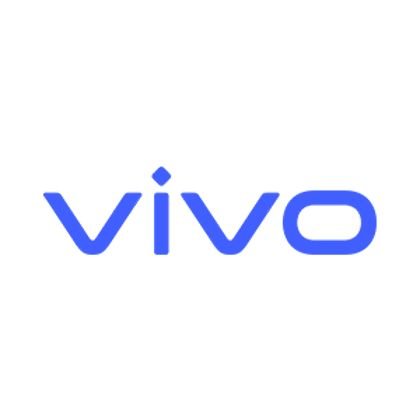
The Kerala Infrastructure and Technology for Education (KITE), the technology wing of Kerala’s General Education Department, has launched an extensive Annual Maintenance Contract (AMC) for over 185,114 high-tech devices deployed in government and aided schools across the state. This forward-looking approach is expected to ensure the continuous and efficient functioning of digital tools that are crucial for modern education.
The AMC, which began recently, covers a vast array of devices, including laptops, projectors, and various other digital tools that were installed as part of the state’s High-Tech Lab project and other educational initiatives over the past several years. In addition to the AMC, KITE has also introduced an insurance scheme to cover damages resulting from natural disasters, theft, and other unforeseen circumstances. This comprehensive approach represents the largest AMC and insurance scheme for IT devices in India, demonstrating Kerala’s commitment to fostering a robust digital education ecosystem.
The Scope and Reach of the AMC
KITE’s new Annual Maintenance Contract covers 185,114 devices in total, divided across various educational institutions:
- Primary and Upper Primary Schools: The AMC includes 79,571 high-tech devices that were installed in 11,226 primary and upper primary schools as part of the High-Tech Lab project launched in 2019. This initiative was aimed at introducing digital tools and resources to enhance the quality of education at the foundational level.
- High Schools, Higher Secondary, and Vocational Higher Secondary Schools: Additionally, the AMC covers 62,677 laptops and 42,866 projectors installed in government and aided high schools, higher secondary, and vocational higher secondary schools during the 2018-19 period. These devices have been under AMC since April 2023, ensuring their functionality and availability for educational purposes.
By ensuring the maintenance and proper functioning of these devices, KITE aims to sustain the momentum of digital education in Kerala. This move is seen as a critical step towards reducing the digital divide and ensuring that students in government and aided schools have access to modern educational resources.
Why the AMC is Crucial for Kerala’s Digital Education Initiatives
The introduction of the AMC is a significant step towards sustaining the state’s ambitious digital education projects. Kerala has been a pioneer in leveraging technology to enhance the quality of education in government and aided schools. The state’s High-Tech Lab project, launched in 2019, aimed to transform the educational landscape by equipping schools with state-of-the-art digital tools, including laptops, projectors, and other devices necessary for a modern learning environment.
However, the success of such projects hinges on the continuous and efficient functioning of these high-tech devices. Over time, regular use, wear and tear, and other unforeseen circumstances can lead to malfunctioning or damaged equipment. This can disrupt the learning process and undermine the goals of digital education. By implementing a comprehensive AMC, KITE is taking proactive measures to ensure that these devices remain operational, thereby enabling uninterrupted access to digital resources for students and teachers alike.
The Implementation Strategy: Ensuring Accountability and Efficiency
The Annual Maintenance Contract introduced by KITE is designed to maintain the functionality of digital devices through a systematic and accountable approach. According to K Anvar Sadath, CEO of KITE, school principals are required to register any hardware-related complaints through a newly launched portal (www.kite.kerala.gov.in/support). This online system is intended to streamline the complaint registration process, ensuring that issues are promptly reported and addressed.
Vendor Accountability and Penalties: To enforce accountability, the AMC includes strict guidelines and penalties for vendors. If vendors fail to attend to or resolve complaints within the stipulated timeframe, they will face penalties. This measure is expected to ensure that vendors prioritize maintenance requests and provide timely service, thereby minimizing downtime and maintaining the availability of digital tools in schools.
Additional Insurance Coverage: Protecting Investments in Digital Education
In addition to the AMC, KITE has introduced insurance coverage to protect against damages caused by natural disasters, theft, and other unforeseen events. This dual approach — combining AMC with insurance — is designed to provide comprehensive protection for the state’s investment in digital education.
The inclusion of insurance coverage is particularly significant given Kerala’s vulnerability to natural disasters such as floods and landslides. The insurance scheme will cover damages to devices caused by such incidents, ensuring that schools do not bear the financial burden of replacing lost or damaged equipment. This initiative is a first-of-its-kind in India and underscores Kerala’s commitment to safeguarding its educational assets.
IT Audit Findings and Plans for Hardware Clinics
A recent IT audit conducted by KITE revealed the loss or permanent damage of 806 laptops (1.43%) and 187 projectors (0.77%) after the completion of their five-year warranty period. This highlights the importance of the newly introduced AMC and insurance schemes. To address the issue of damaged devices, KITE has proposed the concept of “hardware clinics,” where these damaged devices will be examined, repaired if possible, or utilized for spare parts. This innovative approach aims to maximize the utility of existing resources and minimize waste.
The Impact of the AMC on Kerala’s Digital Education Landscape
The introduction of the AMC and insurance coverage is expected to have far-reaching implications for Kerala’s digital education initiatives. Here are some of the key benefits:
- Ensuring Continuity in Digital Learning: The AMC will help maintain the functionality of digital devices, ensuring that students and teachers have uninterrupted access to digital learning tools. This is particularly important in a state like Kerala, where digital education has become a cornerstone of the overall education strategy.
- Reducing the Digital Divide: By providing high-quality digital devices and ensuring their maintenance, the AMC helps bridge the digital divide between students in government and aided schools and their peers in private institutions. This move will ensure that all students, regardless of their socio-economic background, have access to modern educational resources.
- Encouraging Innovation and Creativity: Access to well-maintained digital tools will encourage teachers and students to experiment with new methods of teaching and learning. This could lead to the development of innovative teaching practices that leverage technology to enhance learning outcomes.
- Building Resilience Against Disruptions: The insurance coverage for damages caused by natural disasters and theft will provide an additional layer of protection for the state’s investment in digital education. This will help build resilience against potential disruptions and ensure the sustainability of digital education initiatives.
- Promoting Accountability and Transparency: The online portal for registering hardware complaints and the penalties for vendors who fail to provide timely service will promote accountability and transparency in the maintenance process. This will help build trust among stakeholders and ensure that the AMC delivers on its promises.
Challenges and Future Directions
While the introduction of the AMC and insurance coverage is a significant step forward, there are several challenges that need to be addressed to ensure the success of this initiative:
- Ensuring Timely Service Delivery: One of the key challenges will be ensuring that vendors adhere to the stipulated timelines for resolving complaints. This will require close monitoring and coordination between KITE, school principals, and vendors. The effectiveness of the online portal in facilitating this process will be critical.
- Managing the Scale of the AMC: With over 185,000 devices covered under the AMC, managing the scale of this initiative will be a significant challenge. This will require robust systems and processes to track the status of devices, monitor complaints, and ensure timely service delivery.
- Building Capacity for Hardware Clinics: The concept of hardware clinics is innovative, but it will require adequate infrastructure, resources, and skilled personnel to implement effectively. Building capacity for these clinics will be essential to maximize the utility of damaged devices.
- Raising Awareness and Training: Ensuring that school principals and staff are aware of the new AMC and insurance coverage, and know how to use the online portal to register complaints, will be important. This will require training and awareness programs to familiarize them with the new systems and processes.
- Addressing Financial Sustainability: While the AMC and insurance coverage will help protect the state’s investment in digital education, there will be costs associated with maintaining these services. Ensuring the financial sustainability of these initiatives will require careful planning and budget management.
Looking Ahead: The Future of Digital Education in Kerala
Kerala has long been recognized as a leader in leveraging technology to improve the quality of education. The state’s commitment to digital education is evident in initiatives such as the High-Tech Lab project and the introduction of the AMC and insurance coverage for high-tech devices. As KITE continues to implement these initiatives, there are several areas where future efforts could be focused:
- Expanding Digital Infrastructure: While the AMC and insurance coverage are focused on maintaining existing devices, there is also a need to expand digital infrastructure in schools. This could include providing access to high-speed internet, upgrading hardware, and introducing new digital tools and resources.
- Integrating Digital Learning with Curriculum: To maximize the benefits of digital tools, it is important to integrate them effectively with the curriculum. This could involve developing digital content that aligns with the state’s educational goals and objectives, and training teachers to use digital tools effectively in their teaching.
- Leveraging Data for Continuous Improvement: The online portal for registering hardware complaints could be used to collect data on the performance and maintenance of digital devices. This data could be analyzed to identify trends, track performance, and make informed decisions about future investments in digital education.
- Promoting Digital Literacy: To fully realize the benefits of digital education, it is important to promote digital literacy among students and teachers. This could involve providing training and resources to help them develop the skills and knowledge needed to use digital tools effectively.
- Exploring Partnerships and Collaborations: To sustain and expand digital education initiatives, KITE could explore partnerships and collaborations with technology companies, educational institutions, and other stakeholders. This could help bring in new resources, expertise, and innovative solutions to further enhance the state’s digital education efforts.
Conclusion
Kerala’s introduction of a comprehensive Annual Maintenance Contract and insurance coverage for high-tech devices in schools is a significant step towards ensuring the sustainability and effectiveness of its digital education initiatives. By maintaining the functionality of digital tools, promoting accountability, and providing protection against unforeseen damages, KITE is helping to build a robust digital education ecosystem in the state.
However, the success of this initiative will depend on effective implementation, close coordination among stakeholders, and continuous monitoring and evaluation. As Kerala continues to pioneer new approaches to digital education, other states in India and beyond may look to its experience as a model for integrating technology into education.
The path ahead is not without challenges, but with a strong commitment to innovation, accountability, and equity, Kerala is well-positioned to continue leading the way in digital education. The future of education in Kerala is digital, and with initiatives like the AMC and insurance coverage, the state is laying the groundwork for a more inclusive, effective, and resilient educational system.
ALSO READ: How Generative AI Tools Are Transforming Businesses







